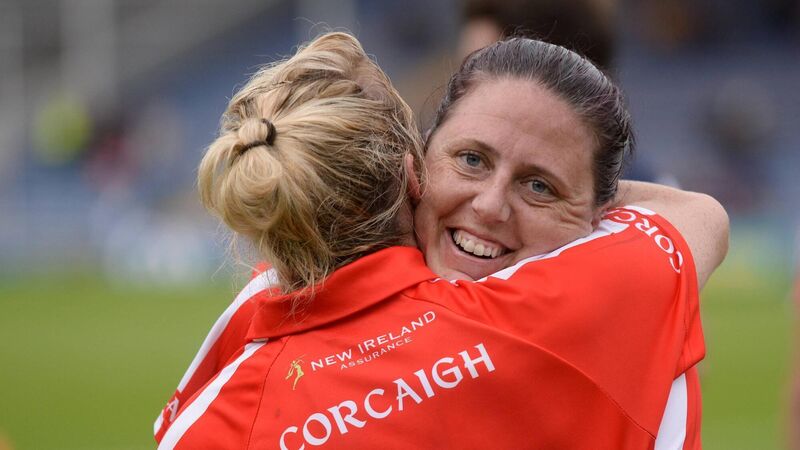Eimear Ryan: Gemma O’Connor’s ability to go off-script is part of what makes her one of the greats

Cork's Gemma O'Connor, behind, celebrates with Briege Corkery after the 2016 Liberty Insurance Senior Camogie Championship Semi-Final game between Cork and Wexford at Semple Stadium in Thurles, Co Tipperary. Photo by Piaras Ó Mídheach/Sportsfile
When I first encountered Gemma O’Connor, we were on opposing squads. It was the 2004 All-Ireland final — the camogie centenary, as it happened. She was lining out at number 9 for Cork; I was on the Tipp bench. Tipperary won handsomely by ten points that day, although Cork would beat Tipp on both subsequent occasions that we met in the final, in 2005 and 2006. More on that anon.
Over a decade later, we would wind up as clubmates when, after living in Cork city for a couple of years, I transferred from my club of origin, Moneygall, to the Barrs. The GAA is like that; it makes friends of enemies, enemies of friends. An ally on the county team might become a bitter club rival; your clubmate might break your heart in an Ashbourne match; your college teammate might mark you into oblivion in an intercounty game. The GAA feels infinite and epic to those who participate in it, but it’s also a small world. And I can confirm that it’s much better to be on the receiving end of a perfectly weighted Gemma O’Connor crossfield ball, than to be on the opposing team trying to figure out how to curb her influence.








